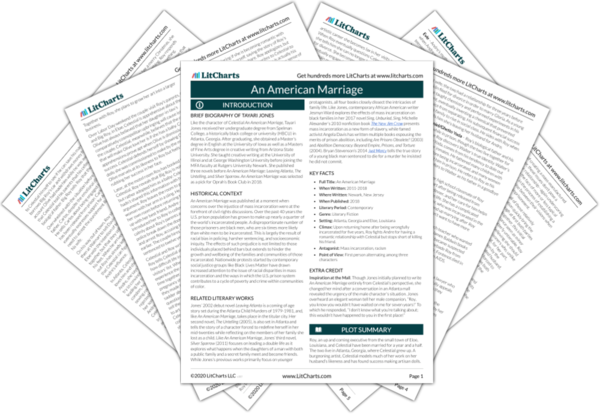Celestial throwing herself into her work has multiple implications. For one, Roy promised her she could focus on her art and he would worry about their finances. Once Roy is no longer the breadwinner, Celestial seeks a way to earn her own living through her art. Her obsession with the dolls, though, is not simply a matter of making money, but also of obsessing over Roy, her muse, who is now physically absent from her life. The baby dolls she’s making are also a parallel for the pregnancy she aborted.
